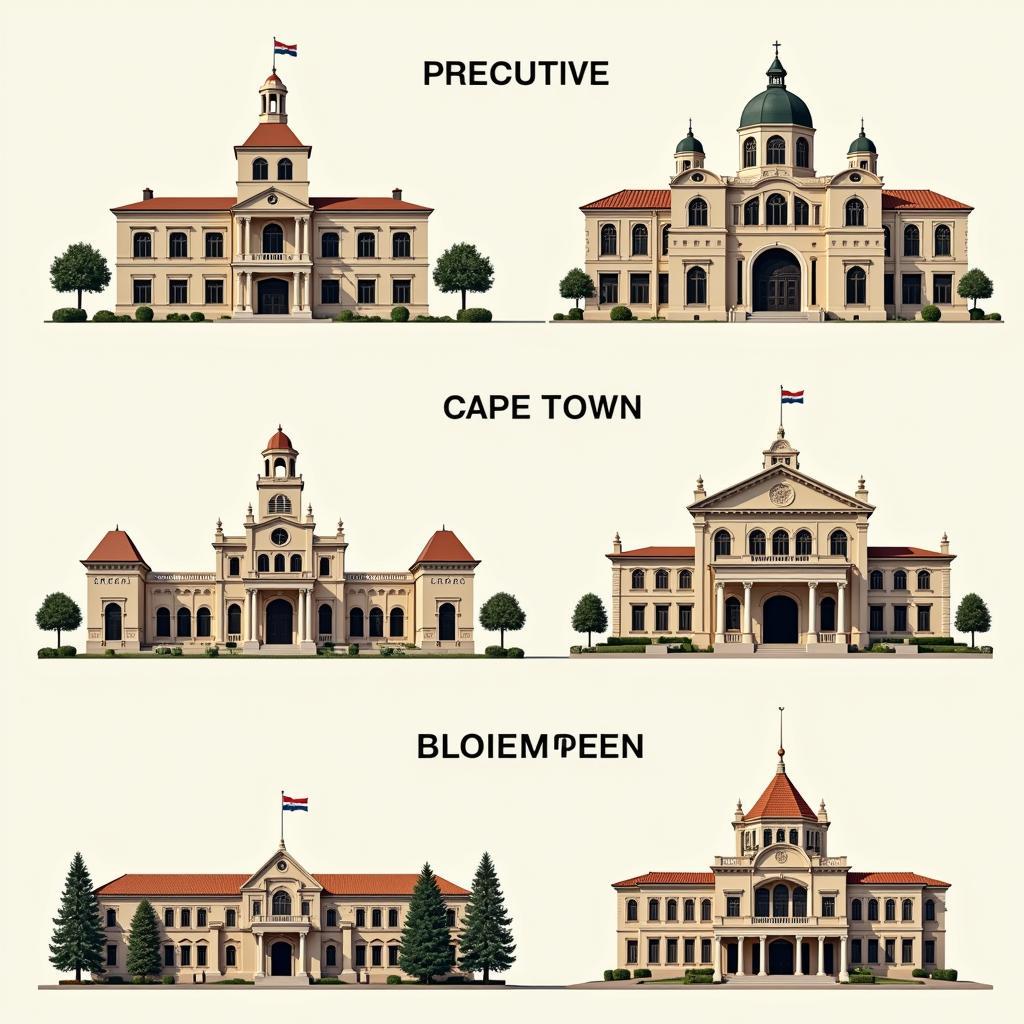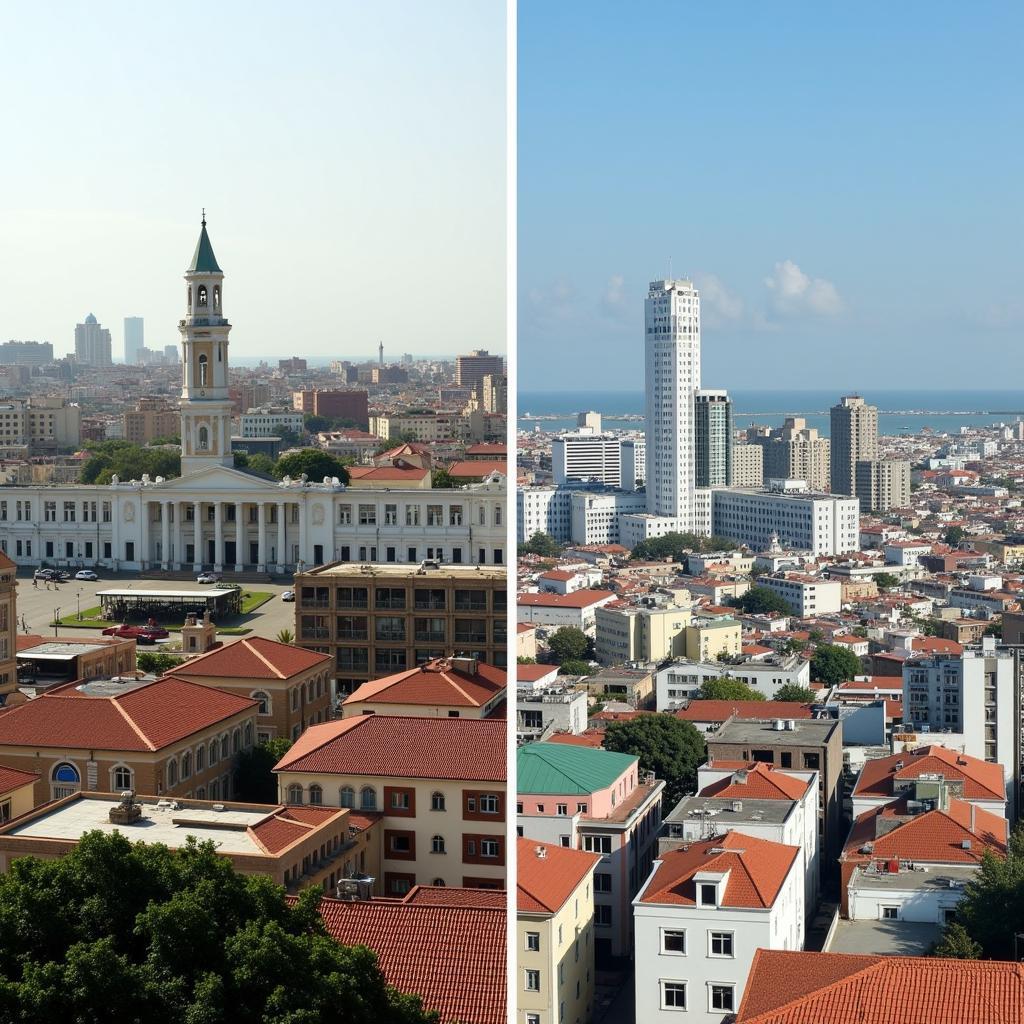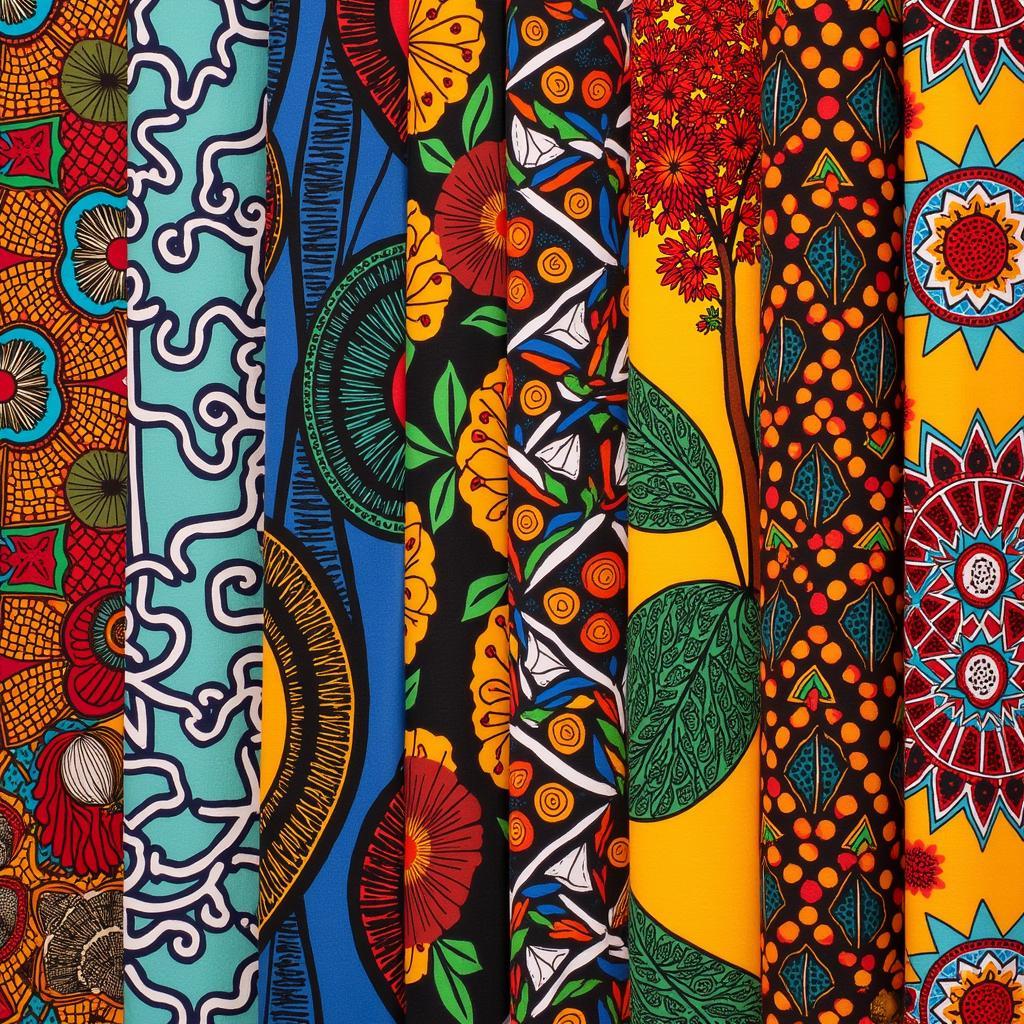African Countries That Have More Than One Capital
South Africa is well-known for having three capitals, but it’s not the only African country with more than one. This article explores the fascinating phenomenon of multiple capitals in Africa, delving into the historical, political, and practical reasons behind this unique administrative arrangement. We’ll examine which African countries have more than one capital and what purpose each city serves.
 South Africa's three capital cities government buildings
South Africa's three capital cities government buildings
Why Do Some Countries Have Multiple Capitals?
Several reasons can lead a country to establish more than one capital. These range from distributing governmental powers to fostering regional development and addressing historical or geographical complexities. Sometimes, it’s a compromise born from political tensions, while other times it’s a strategic decision to promote inclusivity and accessibility across vast territories. Understanding these motivations provides valuable insight into the nuances of governance in these nations.
South Africa: A Case Study in Three Capitals
Perhaps the most well-known example is South Africa. This nation boasts three capitals: Pretoria (administrative), Cape Town (legislative), and Bloemfontein (judicial). 471000 south african rand to inr This division arose from compromises made during the unification process after British rule. Dividing administrative, legislative, and judicial functions among different cities helped balance power and appease different regional interests.
Pretoria: The Administrative Hub
Pretoria houses the executive branch of government, making it the center for day-to-day administration.
Cape Town: The Seat of Parliament
Cape Town is where the National Parliament resides, making it the heart of legislative activity.
Bloemfontein: The Judicial Capital
Bloemfontein serves as the judicial capital, housing the Supreme Court of Appeal.
 Benin's two capitals Porto-Novo and Cotonou
Benin's two capitals Porto-Novo and Cotonou
Benin: A Tale of Two Cities – Porto-Novo and Cotonou
Benin presents another interesting case. While Porto-Novo is the official capital, Cotonou is the largest city and economic center. Many government functions and embassies operate from Cotonou, leading to a de facto dual capital system. This arrangement reflects the economic importance of Cotonou and its logistical advantages. The african continental free trade agreement afcfta has significant implications for the trade activities within these cities and across the continent.
Eswatini (formerly Swaziland): Mbabane and Lobamba
Eswatini, previously known as Swaziland, also has two capitals: Mbabane, the administrative capital, and Lobamba, the royal and legislative capital. This division reflects the importance of traditional monarchy and its role in the governance of the country. Understanding this dual system requires an appreciation of Eswatini’s unique cultural and historical context.
Ivory Coast: Yamoussoukro and Abidjan
Ivory Coast officially designated Yamoussoukro as its capital in 1983, transferring the administrative functions from the former capital, Abidjan. However, Abidjan remains a major economic and political hub, retaining significant influence and many government offices. This ongoing transition reflects the complexities of shifting administrative power. Many people seeking to visit the african institute for mathematical sciences center will find themselves in the vicinity of these two cities.
“Having multiple capitals can be a complex yet effective way for a country to balance its political, economic, and historical realities,” explains Dr. Anika Nkosi, a prominent political scientist specializing in African governance. “It’s not just about dividing administrative tasks; it’s about representing diverse regional interests and fostering a sense of shared national identity.”
The Future of Multiple Capitals in Africa
The trend of multiple capitals reflects the ongoing evolution of governance in Africa. As countries strive to balance tradition with modernity, and economic development with political stability, the distribution of power across multiple cities might become an increasingly relevant strategy. It’s a testament to the adaptability and resourcefulness of African nations in finding unique solutions to their complex challenges.
“The system of multiple capitals in countries like South Africa allows for a more equitable distribution of resources and opportunities,” notes Professor Mandla Dube, a historian specializing in African urban development. “It can also contribute to reducing regional disparities and promoting more inclusive governance.”
Conclusion
The phenomenon of African Countries That Have More Than One Capital provides a fascinating lens through which to understand the complexities of governance, history, and cultural dynamics on the continent. From South Africa’s three capitals to the shared roles of Porto-Novo and Cotonou in Benin, each case offers a unique perspective on how nations adapt to their specific circumstances. Exploring these different models highlights the diversity and ingenuity of administrative arrangements in Africa. For those intrigued by the beauty and diversity of the continent, a list of african islands names can inspire further exploration. Similarly, an african countries list with population can provide a broader understanding of the demographics of these fascinating nations.
FAQ
- Which African country has three capitals? South Africa.
- Why does Benin have two capitals? While Porto-Novo is the official capital, Cotonou is the economic center.
- What are Eswatini’s two capitals? Mbabane (administrative) and Lobamba (royal and legislative).
- What are the two capitals of Ivory Coast? Yamoussoukro and Abidjan.
- Why do some countries have multiple capitals? To distribute power, foster regional development, or address historical/geographical factors.
- Is having multiple capitals a common practice globally? While less common, it exists in a few other countries outside Africa.
- What are the advantages of having multiple capitals? It can balance power, promote regional development, and address historical complexities.
When needing assistance, contact us via Phone: +255768904061, Email: [email protected], or visit our office at Mbarali DC Mawindi, Kangaga, Tanzania. Our customer service team is available 24/7.



